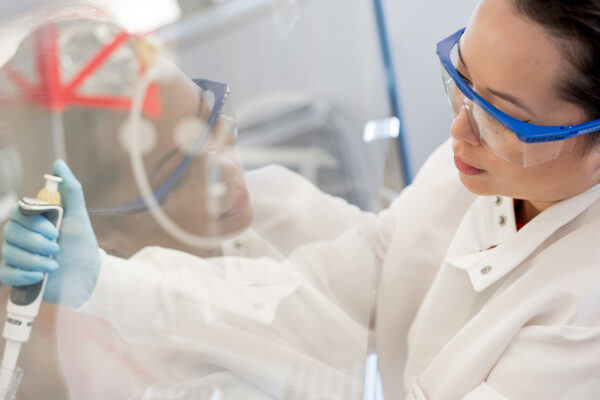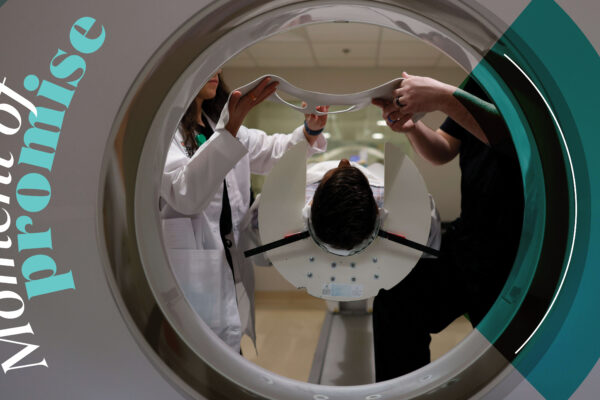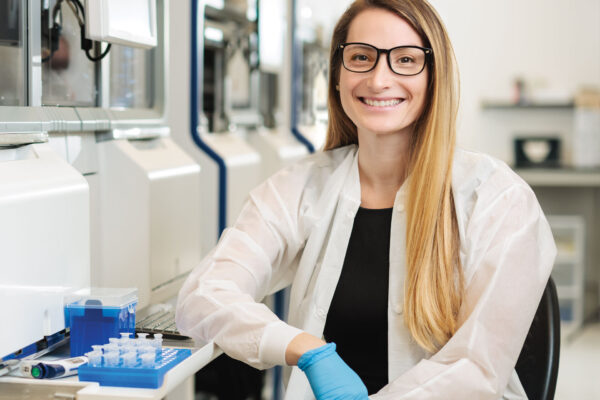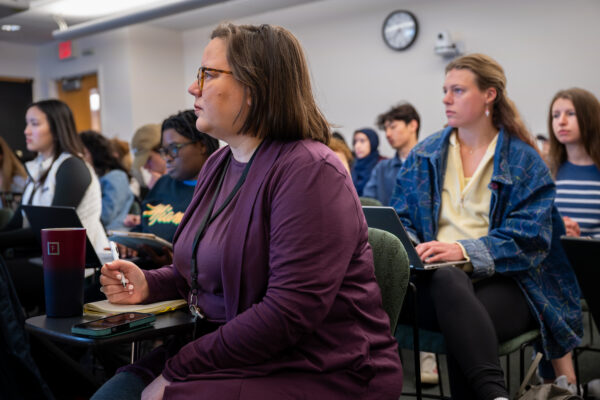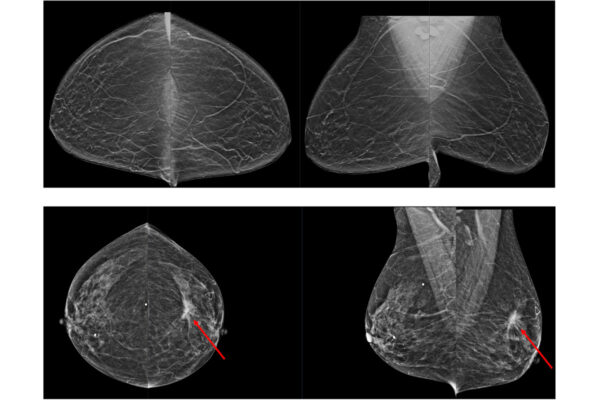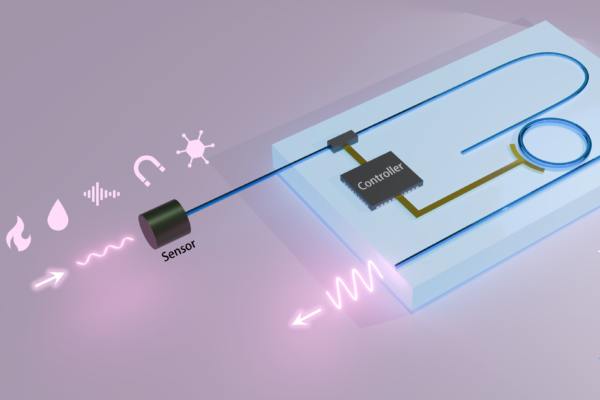Planting and cultivating seeds through connection
In her work with local organizations to promote health and wellness in the St. Louis region, Diana Parra Perez sees the power of solidarity.
Women deserve better health care. Engineers can help.
Pressure. Contraction. Pushing. Rupture. For many, these words point to the experience of labor and childbirth. For Michelle Oyen, something else also comes to mind. “These are all very clearly engineering words that have to do with physical forces,” says Oyen, associate professor of biomedical engineering in the McKelvey School of Engineering. “We’ve been treating […]
Moment of promise
Washington University is known the world over for being a leader in neuroscience research. And the university underscored its commitment to the neurosciences by building an 11-story hub on the Medical Campus that enables researchers to work more collaboratively and creatively. The goal: to accelerate the translation of science into treatments to help those living with neurodegenerative diseases.
Navigate the neurosciences at WashU Medicine
Explore the extensive scope of neuroscience research ongoing at WashU Medicine.
Next-gen testing
Erica Barnell co-founded the life sciences company Geneoscopy to develop innovative diagnostics and transform gastrointestinal health.
The next era of neuroscience research
WashU dedicates the new Jeffrey T. Fort Neuroscience Research Building.
Ding receives Michelson Prize for advancing human immunology
Siyuan Ding, an assistant professor of molecular microbiology at Washington University School of Medicine in St. Louis, has received a Michelson Prize: Next Generation Grant from the Michelson Medical Research Foundation and the Human Immunome Project.
Solving women’s health issues through engineering focus of course
Women’s health has been getting a new focus in recent years from the local to the federal level, with President Joe Biden recently launching initiatives to boost federally funded research in this long-overlooked area. That focus is also active at the McKelvey School of Engineering, where a new elective course is filled with students interested in how they can use engineering to solve problems in women’s health.
AI-assisted breast-cancer screening may reduce unnecessary testing
In a recent study, researchers at Washington University School of Medicine in St. Louis and Whiterabbit.ai showed that artificial intelligence assistance potentially could improve breast-cancer screening by reducing the number of false positives without missing true positives.
Innovative sensing platform unlocks ultrahigh sensitivity in conventional sensors
New research from engineers at Washington University unlocks the power of exceptional points for advanced optical sensing.
Older Stories

